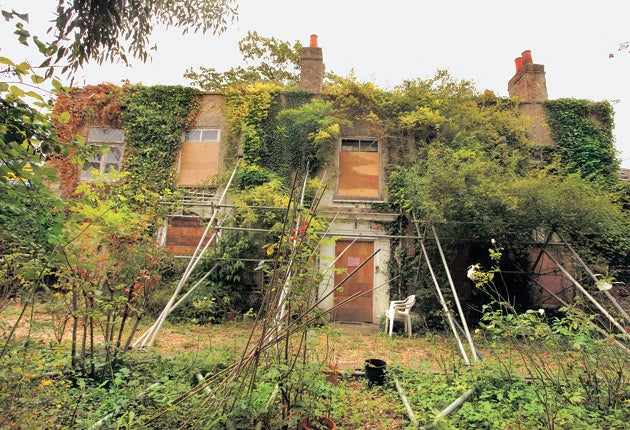Property news roundup: Why do tenants rent?
Plus Six Nations property breakdown, empty homes, homelessness, and rents in UK cities

Your support helps us to tell the story
From reproductive rights to climate change to Big Tech, The Independent is on the ground when the story is developing. Whether it's investigating the financials of Elon Musk's pro-Trump PAC or producing our latest documentary, 'The A Word', which shines a light on the American women fighting for reproductive rights, we know how important it is to parse out the facts from the messaging.
At such a critical moment in US history, we need reporters on the ground. Your donation allows us to keep sending journalists to speak to both sides of the story.
The Independent is trusted by Americans across the entire political spectrum. And unlike many other quality news outlets, we choose not to lock Americans out of our reporting and analysis with paywalls. We believe quality journalism should be available to everyone, paid for by those who can afford it.
Your support makes all the difference.There are now around four million people renting privately in England and a new report from Savills estimates this will reach 5.7m by 2018.
They spoke to 2,300 tenants in major cities across the UK and found that the inability to afford a deposit was given as the most significant reason for renting, especially among the under-45s. But among older private renters, failing to meet mortgage criteria is almost as important. A third of those aged 18 and 24 rated flexibility and the need to move around as another important reason and overall a quarter of people surveyed choose to rent because it is less hassle - another 8 percent said that they are renting because they want to invest their money elsewhere.
"We expect that a better quality private rented sector would prompt more people to rent through choice rather than necessity," said Susan Emmett from Savills.
Rent in the UK's cities
Knight Frank has also been tracking rent, especially across six cities - London, Bristol, Birmingham, Leeds, Manchester, and Glasgow and estimates the 2018 figure will be 5.3 million. "The rental revolution is here," said Gráinne Gilmore, head of UK Residential Research and the report’s author. "The dynamics in the housing market in the UK mean that the private rented sector is set to continue growing in the years to come, boosted not only by the difficulties many face in climbing onto the housing ladder, but also the need for flexible tenure among workers who are increasingly concentrated in the key cities around the UK. Investors keen to tap into the market are starting to move their attention beyond London to the regions, where, as our index shows, yields are higher.”
Six Nations property map
Rentonomy have analysed the 2011 Census to see where support for the rugby contenders is most likely to be apparent. The most popular areas for both Welsh and Scottish Londoners are Islington, Battersea and Wimbledon, while the top three areas for Irish in the capital are Willesden Green, Cricklewood and West Hampstead. For the French it's Fulham, Paddington and Battersea, and for the Italians it's Westminster, Battersea and Islington.
Empty homes
Overly complex and expensive Compulsory Purchase legislation means councils are leaving empty homes to rot, claims the Local Government Association.
It says that there are over 700,000 empty properties in England alone of which around a third of these have been empty for at least six months. However, its analysis suggests that less than 100 planning and housing Compulsory Purchase Orders were submitted in the last year. Some properties have lain empty for a decade or more.
The LGA is calling for councils to be able to acquire time-limited leaseholds, enabling them to undertake refurbishment work to properties and bring them back into a habitable state, recouping their investment through rental income
Mike Jones, Chairman of the LGA's Environment and Housing Board, said: "During one of the worst housing crises this country has faced, with demand at sky-high levels, councils are being hamstrung. It is high time they were given proper compulsory purchase powers, enabling them to ‘revive’ properties that are simply gathering dust."
Homelessness problems for under-25s
National charity Citizens Advice says that the number of its clients aged 17-24 without a roof over their head increased by 57 per cent from 2007/08 to 2012/13. The number of issues of young people at risk of losing their home also rose, with 39 per cent more young clients visiting their local Citizens Advice Bureaux for support over the period.
Citizens Advice Chief Executive, Gillian Guy, said: "Not only are nearly one million young people out of work, but increasing numbers of them are also unable to put a roof over their head. The shocking state of our housing stock means social housing is severely limited while private renting is simply unaffordable for people on low incomes or out of work."
Join our commenting forum
Join thought-provoking conversations, follow other Independent readers and see their replies
Comments